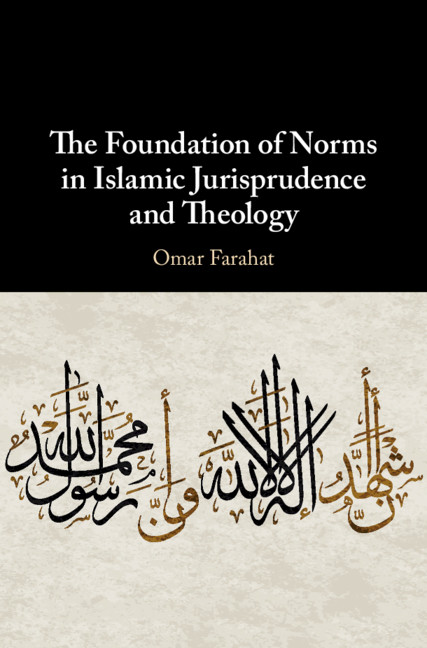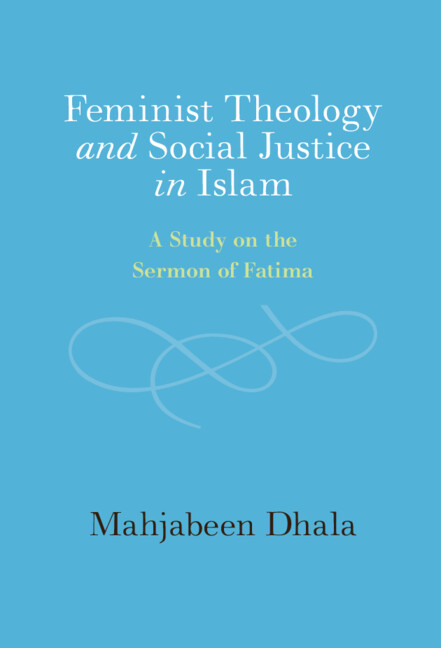The Politics of Islamic Ethics
Fundamental to Islamic thought is the idea that there is a way that human beings simply are, by nature or creation. This concept is called fiṭra. Rooting her investigation in the two central passages in the Qur'an and Hadith literature, where it is asserted that God created human beings in a certain way, the author moves beyond discussion of the usual figures who have commented on those texts to look instead at a group of classical Islamic philosophers rarely discussed in conjunction with ethical matters. Tracing the development of fiṭra through this overlooked strand of medieval thinking, von Doetinchem de Rande uses fiṭra as an entrée to wider topics in Islamic ethics. She shows that the notion of fiṭra articulated by al-Farabi, Ibn Bajja, Ibn Tufayl and Ibn Rushd highlights important issues about organizational hierachies of human nature. This, she argues, has major implications for contemporary political and legal debates.
- Argues for a fresh understanding for the relationship between Islamic ethics and law
- Offers a careful reading of some key classical Islamic philosophers, which puts insightful new perspectives on ideas in Islamic thought about the created nature of human beings
- The most comprehensive and important discussion yet published of the central Islamic notion of fiṭra
- Will have considerable appeal to scholars in Islamic studies, ethics, religious studies, comparative philosophy and medieval studies
Reviews & endorsements
‘This valuable study brings together substantial material on the discourse of fiṭra, and its genealogy, to consider its development among different philosophers. The author's decision to opt for a contextual approach to explore the concept of fiṭra in Islamic thought is commendable, and dovetails with new trends in Islamic studies to capture the dynamic and discursive view of Islamic intellectual thought while rejecting attempts to essentialize or unify religious discourses on ethics. I found compelling Von Doetichem de Rande's critique of certain readings that try to link the notion of fiṭra to natural law discourse in the Western context. Also praiseworthy is her commitment to cover both primary and secondary materials, and the use of different languages including secondary material in Arabic – something that is not always fulfilled by scholars in the West.' Feriel Bouhafa, Julius-Maximilians-Universität Würzburg
‘Raissa von Doetinchem de Rande offers here a careful examination of human nature in pre-modern Islamic philosophy, which is a foundational issue in articulations of Islamic ethics. Her book is essential reading for anyone studying Islamic ethics or laying claim to its traditions.’ Zahra Ayubi, Associate Professor of Religion, Dartmouth College, author of Gendered Morality: Classical Islamic Ethics of the Self, Family, and Society (2019)
‘What is fiṭra? Is it a primordial disposition towards knowledge of God, or humans’ inborn first intelligibles? Is it the same in all humans, or does it vary among them? What is its ethical content, and can individuals or society shape this? What does the concept of fiṭra contribute to discourses on religion, philosophy, political philosophy or society’s normative socio-political order? Does fiṭra promote social hierarchy or equality? And why has the concept held the attention of so many important thinkers? In this probing and fascinating examination of the writings of the falāsifa al-Farābī, Ibn Bājja, Ibn Tuò fayl and Ibn Rushd the Grandson, as well as Muslim exegetes, Raissa von Doetinchem de Rande takes up these and countless other seminal questions. Her expansive and deeply penetrating treatment canvasses the various responses put forth and the tensions between them. Henceforth, no serious discussion of this topic will be able to dispense with this rich and insightful text.’ Sherman A. Jackson, King Faisal Chair of Islamic Thought and Culture, The University of Southern California, author of The Islamic Secular (2024)
Product details
July 2025Hardback
9781009566186
348 pages
216 × 140 × 21 mm
0.577kg
Available
Table of Contents
- Introduction
- 1. Aristotelian logic and Platonic politics: fiṭra as the seat of human dispositions and source of the first intelligibles and its implications for the division of the city in al-Fārābī
- 2. The (mystical) individual and community: sociality, solitude, and the life of the exceptional philosopher in Ibn Bājja and Ibn Ṭufayl
- 3. Revealed law and egalitarianism: shifting emphases in the conception and use of Fiṭra in Ibn Rushd's thought
- Conclusion.







